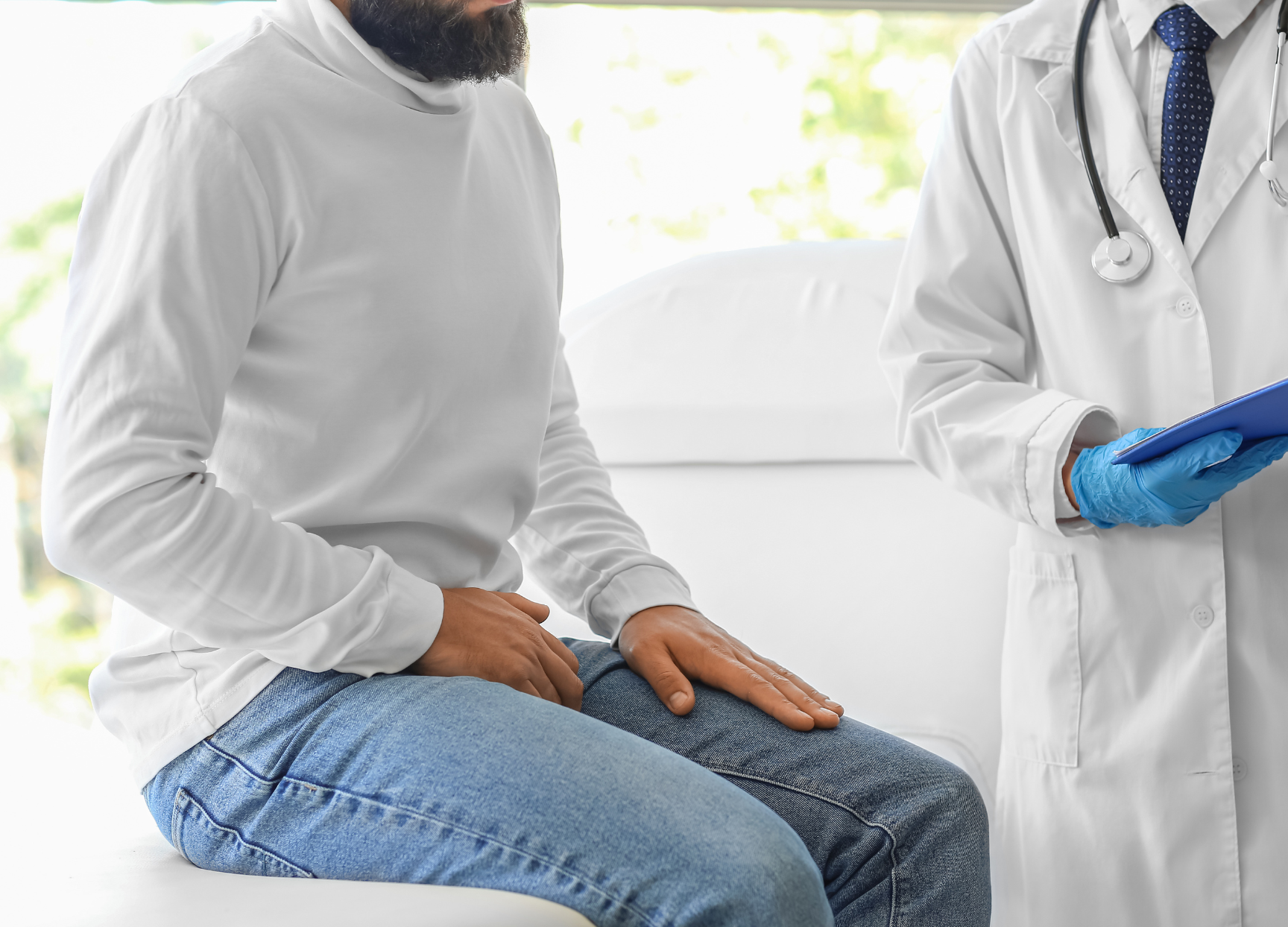Mr Rowland Rees
Consultant Urological Surgeon and Andrologist
Specialist expertise: Men's Health, Urology, Urethral Surgery, Penile Prosthesis, Incontinence Surgery, Vasectomy Reversal, Male Fertility.
Varicocele is a common condition affecting men and presents as enlarged veins around the testicle.

A varicocele is a common disorder that causes the veins in the scrotum (the sac of skin that holds the testicles) to become enlarged. The left scrotum is most often affected but a varicocele can affect either side. It’s a very common condition with up to 15% of all adult men being affected at some point in their life.
Varicoceles are similar to varicose veins that commonly affect the legs. Any symptoms you may experience are usually mild, but varicoceles are associated with subfertility in some people, so it’s important to seek a diagnosis and appropriate treatment as soon as you can if you suspect you have the condition.
Other than the enlargement of the veins in the scrotum, which may look or feel like a ‘bag of worms’, varicoceles rarely causes symptoms. However, you may notice:
What causes varicocele?
Varicoceles occur when the small veins in each side of the scrotum, called the pampiniform plexus, become enlarged.
It’s not known exactly what causes this to happen, but some experts think it may be in relation to a problem in the veins in the spermatic cord. The function of these veins is to return blood from the testicles to the body. However, in the case of varicoceles, it is thought that a fault in the valves of these veins or compression higher up in the abdomen may cause blood to build up in the veins in the testicles, causing them to swell over time.
At OneWelbeck, our urology consultants can make a diagnosis of varicoceles by performing a physical examination of the scrotum. They may also perform an ultrasound scan to confirm the diagnosis, eliminate any other conditions that could be causing your symptoms and check for a lesion or any other factor that may be obstructing blood flow in the scrotum.
Varicoceles do not require treatment unless it is causing you bothersome symptoms or if your fertility has been affected.
In these cases, a surgical procedure is performed to treat the affected veins by ligating them in order to redirect blood flow to other healthy veins in your scrotum. This can be performed using open microsurgery or radiological embolisation.
At your consultation, your consultant will discuss through all the treatment options and will recommend the most appropriate next steps to ensure you make a full and fast recovery.
Currently selected day
Available consultations
We have brought together a group of leading urology specialsits to create our Men's Health team. With over 300 years of combined experience, these expert clinicians are the best in their field and are all focused on delivering the very best patient care.